The Marine Stewardship Council (MSC) is a global nonprofit organization that promotes sustainable fishing practices and raises awareness of the environmental impact of overfishing.
But our ocean is at a point of crisis. Global demand for seafood continues to grow and unsustainable fishing practices are on the increase.
According to the United Nations Food and Agriculture Organization, more than a third of global commercial fish stocks are fished beyond their limit.
“We believe that our goal of engaging over a third of global landings in the MSC program by 2030 is not only achievable but essential. Humanity is running out of time to shift our economies onto a more equitable and sustainable footing.”
MSC CEO
Against this backdrop, the MSC plays a critical role in the conservation and management of the world's ocean. Our Fisheries Standard reflects global best practice and is a recognized benchmark for fishery management and sustainable operations. Our fourth Strategic Plan, launched in 2023, sets out our ambitions and goals towards addressing overfishing. It will run until March 2030, coinciding with key United Nations Sustainable Development Goal milestones.
Fishing for Solutions - the Climate Catastrophe
Our vision
The MSC’s vision is for the world's oceans to be teeming with life and seafood supplies safeguarded for this and future generations.Our 2030 goal
More than one-third of global marine catch will be certified or engaged in the MSC program by 2030, supporting productivity and resilience in the world’s oceans.The six pillars of our Strategic Plan
1. Recognizing and rewarding sustainable fisheries and incentivizing improvement globally
In 2023, 19% of global marine catch is either certified or engaged in the MSC program. We are aiming to increase this figure to more than a third by 2030.
To achieve this, we will strengthen our efforts to maintain the engagement of certified fisheries, endeavoring to increase their recognition, so they reap the reward of their efforts and investment.
In order to help build the pipeline of future certified fisheries, MSC will expand and enhance its In Transition to MSC program. This program enables fisheries to demonstrate their progress as they work towards achieving certification within a defined period. We will also explore the development of other tools and offers beyond certification, such as our Pathways Projects.
Our Ocean Stewardship Fund will continue to fund innovative research and support fisheries at all stages on the path to sustainability.
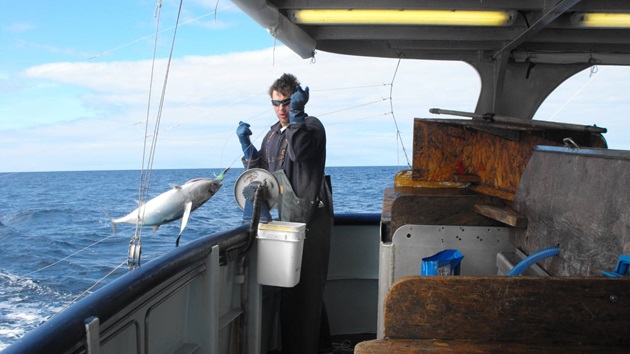
2. Ensuring MSC Standards and certifications are highly credible and reflect global best practice
At the heart of our program lie our Fisheries and Chain of Custody Standards.
The MSC Fisheries Standard changes over time to reflect the evolution and uptake of fishery management best practice. Version 3.0 of the Standard was released in 2022 following a comprehensive review spanning several years.
The maintenance and development of our Chain of Custody Standard also remains a critical priority.
We will also introduce new tools and systems to make our assurance and certification processes more efficient and user-friendly, including the introduction of digital auditing and assessment tools.
3. Cultivating and expanding sustainable seafood markets
Our market strategy aims to create the conditions for the MSC to engage at least a third of the world’s fisheries by 2030. To meet this target, we will consolidate our position in established markets, such as Northern Europe. We will also look to expand in growth markets, such as North America, Australia, and Japan, and large emerging markets, such as India and Indonesia.
To date, we have concentrated our efforts on retail and pre-packed seafood products, especially within supermarket chains and seafood brands. But we will also work to increase ecolabel use in other retail segments like pet food, ready meals, food-to-go, and fish oil supplements.
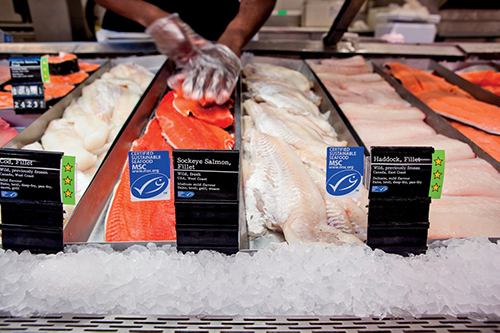
4. Building public awareness and support, and demonstrating science and impact
The MSC program must be credible from a consumer, science, and market perspective.
To sustain its momentum among consumers, the MSC will continue to build awareness and understanding to ensure that consumers see the MSC ecolabel as a recognizable and trustworthy choice for enjoying wild sustainable seafood.
5. Amplifying policy advocacy activity and deepening engagement with a broader range of stakeholders
Our focus on stakeholder engagement and policy advocacy reflects the need for a more vocal MSC in the wider ocean conversation among NGOs, government bodies and scientific groups.
We're already seen as an authority on sustainable fishing and we will reinforce the credibility of our science-based program by increasing our profile as a thought leader on fisheries, supply chain, and seafood sustainability.
We will take policy positions that encourage engagement from stakeholders and support improvements in fishery management agencies. We will be proactive in our engagement with governments and intergovernmental organizations.
6. Enabling and resourcing a high performing global organization
The MSC has evolved and grown significantly, and we will maintain the strength of our diverse global organization through investments in our people, the tools that create an enabling culture, and governance and compliance. This will allow us to continue to support fisheries, supply chains, and markets that are engaged with the MSC program.
e0335bf1811d4144a4589f6a7f4c1d80.tmb-labelhome.jpg?Culture=en-US&sfvrsn=d9fbe5b7_3)
Dive deeper
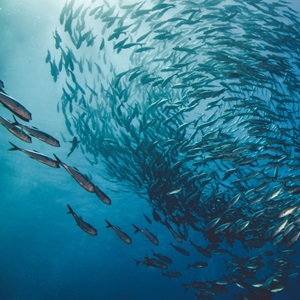
Reports
Read or download the MSC Annual Report and other documents.
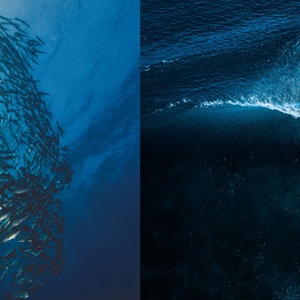
Our collective impact
For 20 over years fisheries, scientists, consumers and industry have been part of a collective effort to make sure our oceans are fished sustainably.
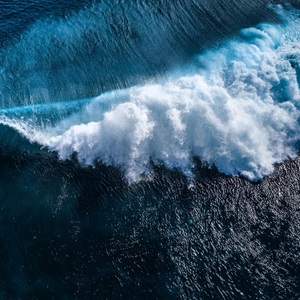
Our governance
Our governance structure involves a wide range of stakeholders with different perspectives to ensure that the MSC’s decisions are balanced, reflecting many sectors and interests.
